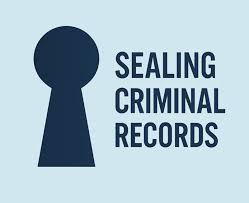Understanding Criminal Record Sealing: A Path to a Fresh Start
In the realm of criminal law, record sealing plays a pivotal role in offering individuals a second chance at life. Old arrests and charges, even if not resulting in convictions, can continue to impact a person’s future, especially when they appear on background checks. For many, this creates barriers to employment, housing, and other opportunities. Record sealing is a legal process designed to hide such records from the view of most employers and the public, thereby reducing the collateral consequences tied to past legal issues.
This article, presented by Legal Marketplace CONSULTANT, aims to provide a comprehensive and detailed explanation of criminal record sealing, including eligibility criteria, the sealing process, benefits, limitations, and how to seek appropriate legal assistance in 2025. Understanding how record sealing operates can empower individuals who are looking to move beyond their past and improve their prospects in society.
What is Criminal Record Sealing?
Criminal record sealing is a legal procedure whereby certain criminal records are hidden from public view and standard background checks. Unlike record expungement, which often involves the destruction or complete erasure of a criminal record, sealing keeps the records intact but inaccessible without a court order or special authorization. This means that for most practical purposes, the sealed records will not appear when employers, landlords, or licensing agencies run background checks.
The purpose of record sealing is to provide individuals with past arrests or charges a chance to protect their privacy and avoid discrimination based on incidents that may no longer be relevant to their current character or abilities. It also recognizes that individuals can rehabilitate themselves and no longer should be indefinitely penalized for mistakes or accusations that did not result in convictions.
Eligibility Criteria for Record Sealing
Eligibility for record sealing depends heavily on the jurisdiction, the nature of the charges, and the outcome of the case. Generally, the following factors are considered:
- Whether the case resulted in a dismissal, acquittal, or was otherwise resolved favorably for the defendant.
- The severity of the charge: minor offenses and misdemeanors are more likely to be eligible than serious felonies.
- The amount of time elapsed since the case was closed without subsequent criminal activity.
- Compliance with all court orders, including probation or fines.
Each state or jurisdiction in the United States may have different rules governing the sealing of records. For example, some states allow sealing of juvenile records automatically upon reaching adulthood, while others require a formal petition. It is crucial to understand specific local laws when considering record sealing.
The Process of Sealing Criminal Records
The process to seal a criminal record generally involves several steps:
- Filing a petition with the appropriate court that has jurisdiction over the case.
- Providing detailed information about the case, the charges, and the disposition.
- Demonstrating eligibility according to legal standards, including evidence of good conduct.
- Serving notice to the prosecutor’s office or other relevant parties.
- Attending a court hearing where the judge reviews the petition and any objections.
- Receiving the court’s decision granting or denying the record sealing.
The timeline and complexity of this process can vary. In some cases, record sealing is straightforward and uncontested; in others, it may require legal advocacy and argumentation, especially when prosecutors object to the sealing of records.
Benefits of Sealing a Criminal Record
Sealing records offers many significant benefits for individuals seeking to rebuild their lives:
- Removal of obstacles in obtaining employment, as most background checks will no longer reveal the sealed records.
- Improved chances of renting housing or obtaining loans, which often require background information checks.
- Restoration of certain civil rights, including the ability to serve on juries or obtain professional licenses.
- Psychological relief and enhancement of social standing, aiding reintegration into the community.
- Protection of privacy, limiting disclosure of past criminal involvement to unauthorized parties.
Overall, record sealing creates new opportunities and significantly reduces the stigma attached to criminal allegations that are no longer appropriate to consider in most contexts.
Limitations and Exceptions to Record Sealing
While record sealing offers an important chance for a fresh start, there are some important limitations and exceptions to be aware of:
- Certain serious crimes, particularly violent felonies or sexual offenses, are often excluded from record sealing eligibility.
- Sealed records may still be accessed by law enforcement agencies for investigation and prosecution purposes.
- Government agencies responsible for licensing or security clearances may have access depending on state laws and regulations.
- Sealing does not equate to expungement; the records still exist, albeit hidden, and in some cases, may be unsealed under a court order.
- Applicants must often meet strict timelines and procedural requirements to qualify for sealing.
Understanding these limitations is important so that expectations are managed realistically when pursuing record sealing.
Why Many Overlook the Opportunity
Despite the substantial benefits, many individuals fail to pursue record sealing due to lack of awareness or misconceptions about the process. Some common reasons include:
- Belief that record sealing is only for those convicted, not realizing it applies to arrests and certain charges as well.
- Concerns about the cost and complexity of the legal process.
- Assuming a criminal record will permanently hinder opportunities without understanding available remedies.
- Lack of access to qualified legal resources to guide them.
Legal Marketplace CONSULTANT encourages individuals to explore record sealing as a tool for rehabilitation and progress, with the right legal support making the process more manageable.
How Legal Marketplace CONSULTANT Can Help
Navigating the complexities of criminal record sealing requires expertise and careful preparation. Our team at Legal Marketplace CONSULTANT specializes in criminal law and understands the nuances of record sealing in various jurisdictions. We provide:
- Comprehensive evaluation of your criminal history and eligibility for sealing.
- Assistance in preparing and filing petitions accurately and timely.
- Representation during court hearings to advocate for your petition.
- Guidance on rights restoration and related legal processes.
- Confidential and compassionate service tailored to your unique circumstances.
If you have old arrests or charges that continue to affect your life, do not hesitate to seek proper legal assistance. For detailed consultations, please contact us through the communication links provided in our bio or send a private message.
Frequently Asked Questions about Record Sealing
- Can I seal a record if I was not convicted? Yes. Record sealing is often available for arrests or charges that did not result in convictions, such as dismissals or acquittals.
- Does sealing a record guarantee that employers will never see it? Sealed records typically do not appear on standard employment background checks. However, some employers in sensitive industries might have access through special channels.
- How long does the sealing process take? The timeline varies by jurisdiction but generally takes several weeks to a few months, depending on court schedules and case complexity.
- Is sealing the same as expungement? No. Expungement often means the record is destroyed or completely erased, whereas sealing hides the record but it still exists.
- Can sealed records be unsealed? Yes, under certain circumstances, such as law enforcement investigations or court orders, sealed records can be accessed.
Criminal record sealing represents a valuable legal mechanism to protect privacy, reduce discrimination, and facilitate social and economic reintegration. By understanding eligibility, limitations, and the proper process, individuals can make informed decisions to secure a better future.
Legal Marketplace CONSULTANT is committed to guiding clients through every step of record sealing, providing expert legal support to maximize the chances of success. If you or someone you know is struggling with past criminal records affecting current opportunities, reach out to us today through the communication channels in our bio or send a private message for personalized legal advice and assistance.
Legal Marketplace CONSULTANT— your trusted partner in comprehensive criminal law services, dedicated to helping clients achieve the protection and relief they deserve through effective record sealing and beyond.































